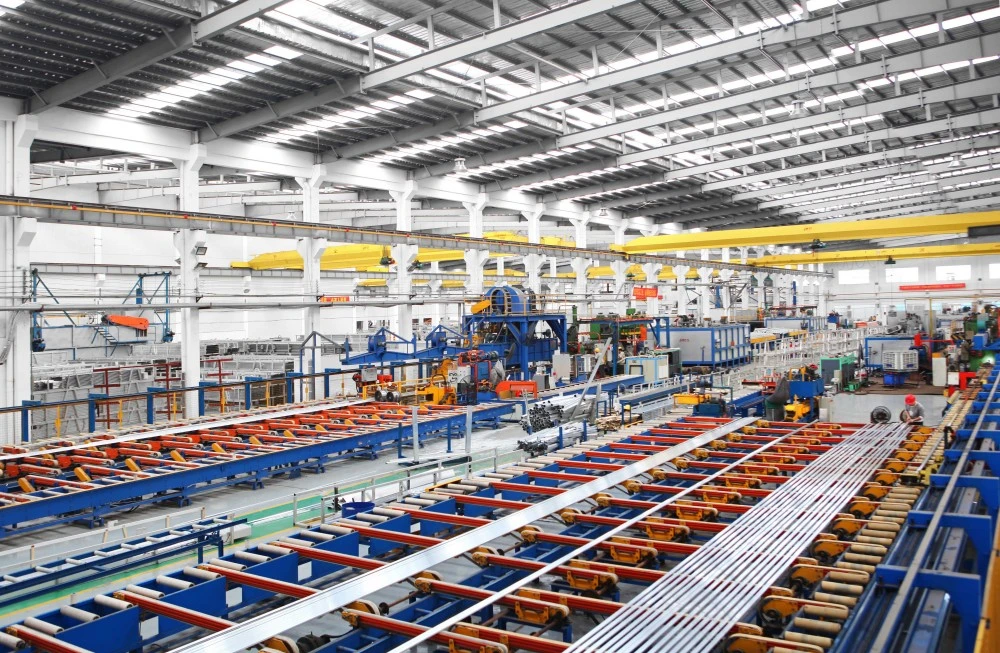Different Types of Aluminum Profiles
It is well known that different projects require different tools and materials to be executed correctly. Aluminum is one of the most popular materials a variety of industries because of its lightness, ductility, durability and versatility. Due to its wide range of applications, aluminum extruders are used to produce a wide variety of profiles.
To achieve the best results of the project, you need to choose the suitable cross-section profile. In this article, we will explore different profiles to highlight their features, applications, and benefits.

Extruded Aluminum Profiles:
These are the most common type and are created by pushing aluminum billets through a die to form specific shapes. They can be customized for various applications.
Examples include T-slot profiles, angle profiles, square and rectangular tubes, and round tubes.
Anodized Aluminum Profiles:
These profiles have undergone an anodizing process, which increases their corrosion resistance and durability. They are often used in outdoor and architectural applications.
Anodized profiles come in various colors and finishes, including clear, black, bronze, and champagne.
Aluminum Structural Profiles:
These profiles are designed for structural applications where strength and stability are crucial. They are often used in construction, industrial equipment, and machinery.
Examples include I-beams, H-beams, and T-beams, as well as channels and angles.
Aluminum Window and Door Profiles:
These profiles are tailored for the construction of windows, doors, and curtain walls. They offer excellent strength, durability, and aesthetic appeal.
Window and door profiles come in various configurations, including frames, sashes, mullions, and thresholds.
Aluminum Heat Sink Profiles:
These profiles are specifically designed to dissipate heat efficiently, making them ideal for electronic devices, LED lighting, and other heat-generating applications.
Heat sink profiles often feature intricate designs with fins or ridges to increase surface area and improve thermal conductivity.
Aluminum Solar Panel Frame Profiles:
These profiles are used to construct frames for solar panels. They provide structural support and protection for the solar cells.
Solar panel frame profiles are lightweight, corrosion-resistant, and designed to withstand outdoor conditions.nts in construction, bridges, and industrial buildings. They offer high strength and rigidity while being relatively lightweight.
Aluminum is a good choice for this application because of its ability to hold heavy glass panels in place while maintaining a pleasing aesthetic. When you choose aluminum here, you can rest assured that you won't run the risk of the glass falling off and suddenly collapsing.


